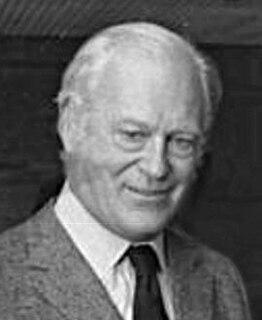The Goethe Prize of the City of Frankfurt is a prestigious award for achievement 'worthy of honour in memory of Johann Wolfgang Goethe' made by the city of Frankfurt am Main, Germany. It was usually an annual award until 1955, and thereafter has been triennial. Many recipients are authors, but persons working in several other creative and scientific fields have been honoured. The prize money is €50,000.
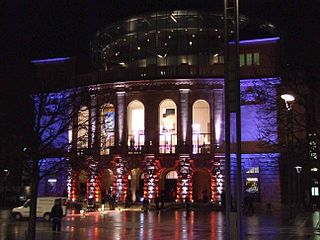
The Carl Zuckmayer Medal is a literary prize given by the state of Rhineland-Palatinate in memory of Carl Zuckmayer. The medal itself was fashioned by state artist Prof. Otto Kallenbach. The prize is also given with a 30 liter cask of Nackenheimer wine from region Gunderlock, a type valued by Zuckmayer. The bestowal takes place on January 18, the anniversary of Zuckmayer's death.
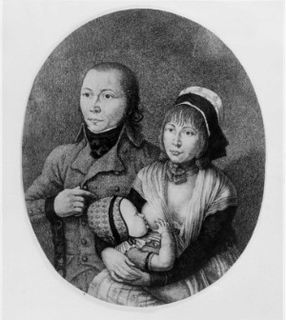
Johannes Bückler, nicknamed Schinderhannes, was a German outlaw who orchestrated one of the most famous crime sprees in German history. He was born at Miehlen, the son of Johann and Anna Maria Bückler. He began an apprenticeship to a tanner but turned to petty theft. At 16 he was arrested for stealing some of the skins, but he escaped detention. He then turned to break-ins and armed robbery on both sides of the Rhine, which was the border between France and the Holy Roman Empire.

Carl Mayer was an Austrian-Jewish screenplay writer who wrote or co-wrote the screenplays to The Cabinet of Dr. Caligari (1920), The Haunted Castle (1921), Der Letzte Mann (1924), Tartuffe (1926), Sunrise (1927) and 4 Devils (1928), the last five being films directed by F. W. Murnau.
The Captain of Köpenick is a satirical play by the German dramatist Carl Zuckmayer. First produced in 1931, the play tells the story, based on a true event that happened in 1906, of a down-on-his-luck ex-convict shoemaker who impersonates a Prussian Guards officer, holds the mayor of a small town to ransom, and successfully "confiscates" the town's treasury, claiming to be acting in the name of the Kaiser. The Prussian cult of the uniform ensures that the townspeople are all-too willing to obey his orders, in stark contrast to the treatment the protagonist was given before he donned the uniform. Zuckmayer described the story as a "German fairy tale".
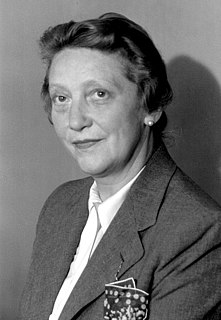
Käthe (Katharina) Dorsch was a German actress.

Eugen Gottlob Klöpfer was a German actor.
Schinderhannes may refer to:
Katharina Knie is a 1928 play by the German writer Carl Zuckmayer. It was first performed on 20 December 1928 at the Lessing Theater in Berlin starring Elisabeth Lennartz and Albert Bassermann.

The Burning Secret is a 1933 Austrian-German drama film directed by Robert Siodmak and starring Alfred Abel, Hilde Wagener and Hans Joachim Schaufuß. It was based on the novella of the same title by Stefan Zweig. It was released by the German branch of Universal Pictures.
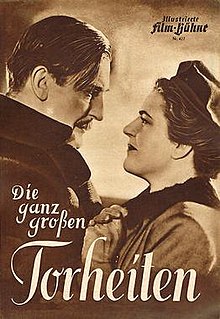
Such Great Foolishness is a 1937 German drama film directed by Carl Froelich and starring Paula Wessely, Rudolf Forster and Hilde Wagener. The film was set in Vienna, unusually for a German film of the time which had increasingly cut back on films set in Austria since the Nazi takeover of 1933. The film was based on a novel by Marianne von Angern.

After the Storm is a 1948 drama film directed by Gustav Ucicky and starring Maria Schell. It was made as a co-production between Austria, Switzerland and Liechtenstein, based on a novella by Carl Zuckmayer. A talented young female musician tries to rebuild her life having been imprisoned during the Second World War.
The Merry Vineyard may refer to:
The Merry Vineyard is a 1927 German silent film directed by Jacob Fleck and Luise Fleck and starring Rudolf Rittner, Camilla Horn and Lotte Neumann. It was based on a play by Carl Zuckmayer, which was remade in 1952 as a sound film.

Eduard Zuckmayer was a German pedagogue, composer, conductor and pianist. He was the older brother of the famous German writer Carl Zuckmayer (1896–1977).

Robert Kafka Lehrer was a stage, motion picture and television actor.
Elisabeth Lennartz (1902–2001) was a German stage actress. Although she worked primarily in the theatre, she also appeared in several films. Lennartz was an associate of Marlene Dietrich in 1920s Berlin.





